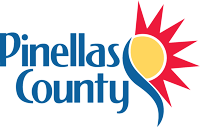 Tropical Storm Eta flooded many homes and businesses in Pinellas County. The following rundown of advice and resources are still applicable to those impacted.
Tropical Storm Eta flooded many homes and businesses in Pinellas County. The following rundown of advice and resources are still applicable to those impacted.
General information
- FEMA Individual Assistance is not available at this time.
- Pinellas County is working diligently to document flood damages to apply for potential state and federal emergency assistance, but need individuals and businesses to report damages to ensure all of the damage is accounted for.
- Residents are asked to report their flood damage at https://arcg.is/1T4i9j.
- Businesses are asked to report damages at www.floridadisaster.biz/BusinessDamageAssessments.
- National Flood Insurance Program (NFIP) flood insurance policies do not cover expenses related to loss of use of the property, like short-term rental housing costs.
The county debris contract was not enacted. Residents should remove debris per their household or local solid waste contractor policies.
If your home is uninhabitable due to flood damage and you need shelter assistance contact the American Red Cross at 1 (800) 733-2767 or 1 (800) RED-CROSS.
If flood damage has occurred
- Contact your flood insurance agent as soon as possible. There are time limitations to file your claim. Visit www.floodsmart.gov/start for more information.
- Document flood damage with photographs and inventory including the item description, replacement cost, and age.
- Remove all wet items to avoid mold AFTER you have documented the damage. Visit www.pinellascounty.org/flooding/safety.htm for tips on cleaning up after a flood.
- You can ask your insurance adjuster for an advance payment to help with repairs.
- Get multiple estimates for repairs.
- Build back safer and stronger. Get required permits before starting any home repair, improvement, or construction. Visit www.pinellascounty.org/flooding/buildsmart.htm to learn more or call (727) 464-3888 with questions.
- Hire only a licensed contractor. To find a contractor or confirm a contractor’s license is legitimate and current visit the Pinellas County Construction Licensing Board at https://public.co.pinellas.fl.us/clbsearch/index.jsp.
- Do not sign an Assignment of Benefits contract (AOB) as a condition to having your home repaired. An AOB gives a third party authority to file a claim, make repair decisions and collect insurance payments without your involvement. Visit https://www.myfloridacfo.com/division/consumers/assignmentofbenefits.htm to learn more.
- Look out for price gouging. If you believe that a business or individual is price gouging during a declared state of emergency, call (727) 464-6200 to report and to speak with an investigator.
- Get up to $1,000 in reimbursements. Provide receipts to your flood insurance agent for all flood protection measures taken to prepare for the storm. You can receive up to $1,000 in reimbursements under the NFIP Loss Avoidance clause. Visit https://www.fema.gov/sites/default/files/2020-07/fema_nfip_understanding-flood-loss-avoidance_agents.pdf for more information.
- If your home or business is substantially damaged, up to an additional $30,000 may be available under the NFIP Increased Cost of Compliance provision. Visit https://www.fema.gov/floodplain-management/financial-help/increased-cost-compliance or ask your flood insurance agent to find out more.
- HUD offers a low-interest mitigation loan (203(k)) that you can use to rebuild your structure. Visit www.hud.gov/program_offices/housing/sfh/203k/203k–df to learn more.
For businesses
The Department of Economic Opportunity (DEO) has launched their Business Damage Assessment Tool for Tropical Storm Eta. This is a first step in getting potential financial assistance for impacted community businesses. The tool can be accessed at https://floridadisaster.biz/BusinessDamageAssessments.
